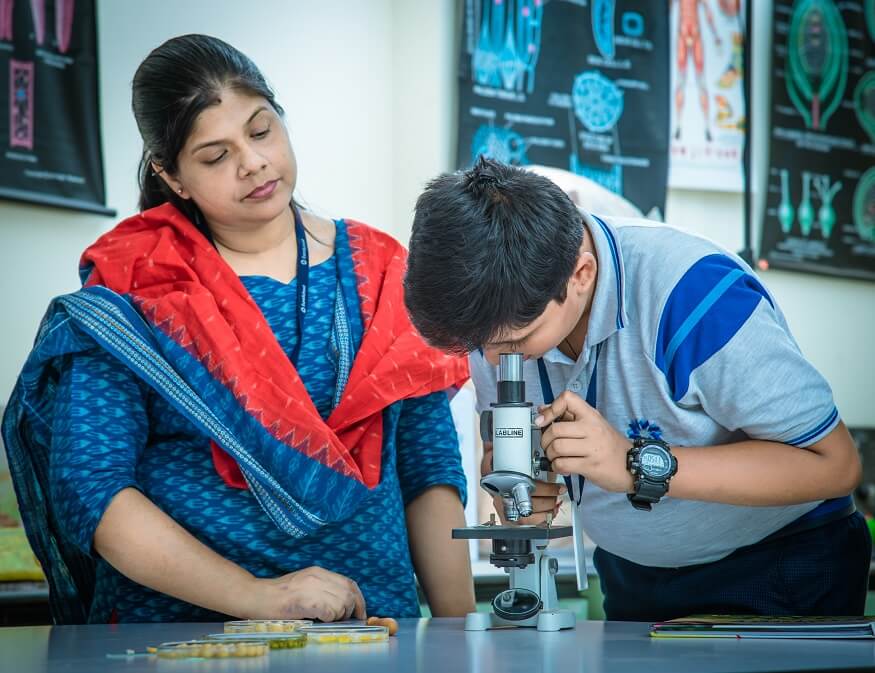Science is defined as the systematic study of the composition and behaviour of the physical and natural world by way of experimentation, observation, and empirical testing based on evidence. Close to 60% of all students opt for the science stream to pursue careers in medical and non-medical fields. For students, science is about understanding how the world works. Inventions are an integral part of the scientific phenomenon. Students draw immense pleasure in creating something new and magical with their science projects, such as lifting an object with a homemade water turbine or lighting a bulb using a potato, etc. One such remarkable invention led to the coronation of National Science Day.
Let’s look at 10 things students should know about National Science Day.
Day and Date
National Science Day is celebrated on February 28 every year. The first National Science Day was celebrated on February 28, 1987.
Significance of National Science Day
The National Science Day is celebrated to promote the importance of science for all of us. The National Science Day marks the discovery of the Raman Effect by Sir C. V. Raman on February 28, 1928. The Raman Effect is one of the most significant discoveries in the history of modern science. As a mark of respect for this auspicious day, the National Council for Science and Technology Communication (NCSTC) in 1986 recommended to the Indian government to designate this day as National Science Day.
The NCSTC
The National Council for Science and Technology Communication (NCSTC) is a council set up by the government of India in 1984. NCSTC is mandated to further the cause of science and technology amongst the masses, to stimulate scientific and technological thinking, and organise and coordinate efforts to spread the prevalence of scientific thinking and attitude throughout the country.
CV Raman
Sir C V Raman was a famous Indian physicist known for his work in the field of light scattering. He had a Bachelor’s and Master’s Degree in Physics from Presidency College, Madras. His discovery of what is known as the Raman Effect is a significant landmark in the history of physics and science. He received the Nobel Prize in Physics for this discovery in 1930. Sir C V Raman was the first Asian scientist to receive the Nobel Prize in the field of science. He was also conferred with the highest civilian award in India – Bharat Ratna, in 1954.
The Nobel Prize
Alfred Nobel was a Swedish industrialist known for his invention of dynamite. The Nobel Prize was founded as per the dying will of Alfred Nobel in 1895 to institute five separate awards for “those who, during the preceding year, have conferred the greatest benefit to humankind.” The first Nobel Prize was awarded in 1901 and is given to achievers in the fields of Physics, Chemistry, Physiology or Medicine, Literature, and Peace. Other Indians to win the Nobel Prize, in addition to C V Raman, are:
- Rabindranath Tagore, Nobel Prize in Literature (1913)
- Har Gobind Khorana, Nobel Prize in Medicine (1968)
- Subrahmanyam Chandrasekhar, Nobel Prize in Physics (1983)
- Amartya Sen, Nobel Prize in Economic Sciences (1998)
- Venkatraman Ramakrishnan, Nobel Prize in Chemistry (2009)
- Kailash Satyarthi, Nobel Peace Prize (2014)
- Abhijit Banerjee, Nobel Prize in Economic Sciences (2019)
Raman Effect
The Raman Effect occurs as a result of molecules deflecting light beams passing through any solid, liquid, or gaseous medium. This leads to a change in the wavelength of the beam of light. The nature of this deflection or scattering is dependent on the structural composition of the substance that forms the medium. Raman Spectroscopy is the popular application of the Raman Effect. Raman Spectroscopy is used for the analysis of substances. From simple solids, liquids, or gases to highly complex substances such as biological organisms and human tissues can be analysed using Raman Spectroscopy.
National Science Day celebrations
National Science Day is celebrated across schools, colleges, universities, and other academic and scientific and research organisations. Celebrations on this day typically include public speeches, science exhibitions, award ceremonies for scientific achievements, science movies are telecast, and various science exhibitions and events with a scientific theme are organised across the country. Scientists and researchers are facilitated for their contributions to the field of science.
National science day activities
Following is a list of activities that can be organised for children on National Science Day:
- Speech or Debate Competition
- Quiz Competition
- Essay Writing Competition
- Science Exhibition/Fare
- Science Theme Parade (or Fancy-Dress Competition)
- Screening of Scientific Movies
- Visits to Scientific Museums and Planetariums
- Inviting accomplished scientists as speakers
Theme of National Science Day, 2023
The theme of National Science Day 2023 was ‘Global Science for Global Wellbeing’. The themes of the past few years were as follows:
2022 – ‘Integrated Approach in S&T for Sustainable Future’
2021 – ‘Future of STI: Impact on Education Skills and Work’
2020 – ‘Women in Science.’
2019 – ‘Science for the People, and the People for Science’
2018 – ‘Science and Technology for a sustainable future
The theme for 2023 was released by Union Minister of State, Dr Jitendra Singh. The theme symbolises India’s increasing significance and role in the global scheme of things. The theme also syncs well with India assuming the G20 Presidency. The Department of Science and Technology (DST) is the nodal agency that coordinates the celebration of National Science Day throughout the country.
DST – Promoting Science and Technology
The Department of Science and Technology (DST) within the Ministry of Science and Technology was established in 1971. The objectives of DST are to promote the advancement and new areas in science and technology and organise, coordinate and promote scientific activities within the country (such as the National Science Day). DST also makes funding available for various scientific projects in the country.
Visit EuroSchool today and enroll your child!









